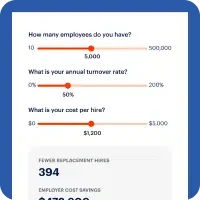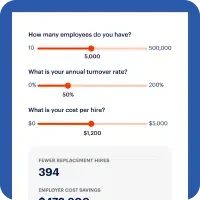Stop reading and take a look around. Chances are you are working in a home office, from the couch, in your guest room, your child’s room, or potentially even working outside and enjoying the sunshine. In more normal times, most would classify you as “working from home.” But nowadays, it just means you are “working.”
In our new normal, seven significant transformations are taking place, which are architecting the true path in the future of work.
- The acceleration of digital transformation. Every industry has witnessed its own version of digital transformation, and it is fantastic! Acceleration has taken place in remote telehealth, insurance claim scanning, contactless payments, on-demand pay, and even online workouts. The world of work has had to make one choice — accelerate or die. Food on Demand says it best: 3 years of digital transformation has occurred in 3 months. And this transformation is just heating up.
- Greater expectations from employers. The combination of the new generations of Millennials and Generation Z in the workplace and the health crisis has created the perfect storm for employers. Employees now expect employers to step up as leaders and meet their needs for personal security, financial security and work culture. The demand is serious. Employees expect more because they believe we deserve more/better.
- The meaning of the “office” has changed. With 67% of workers stating that they would prefer to maintain a flexible work schedule when the economy opens up, results suggest that workers are looking to continue remote work 2-3 days per week. Business leaders suggest that up to 15% of the workforce will remain remote, placing a higher value on family time. The COVID-19 crisis has reset our values. Corporate real-estate agents don’t necessarily agree. While the jury is still out on this one, only time will tell.
- The rise of the micro-event. The quest for creating experiences has been accelerated. People will not want to gather in crowded events and conferences. Instead, micro-events and partially in-person/partially streaming events will allow more personal interaction with people who will become much more than just a name and a title as a result. Large-scale events replaced with opportunistic virtual and smaller experiential events will create tighter relationships, supporting increased connections and persuasion. The ketchup cannot be put back into the bottle.
- Business travel will be redefined. At least for the next 12-18 months, travel restrictions and health concerns make virtual meetings top of mind. That said, we expect to see business travel improve locally first, then regionally, then nationally. In the meantime, expect a boom in new technology that enables us to find new ways to interact. SpaceX has launched at the perfect time.
- Companies will seek cost containment. Expect restructuring actions, across every industry, that will help reduce costs and increase efficiency and productivity. COVID-19 forced us to accelerate this internal review of all business practices. As employees demand more from their employers, companies will take the opportunity to do it all different this time — to staff different, to interact with customers different and to pay different.
- Trust in the workplace has been shaken. Employee experiences matter now more than ever. HR leaders will play a more strategic role in the recovery of our businesses by creating a sense of stability and a better work/life blend in our new world of work. Every aspect of HR service, from increased PPE and changes in PTO to a more flexible work schedule and even a commitment to giving employees full control over their earned income, will be under consideration, and offering a daily pay benefit will go a long way in re-establishing trust in the workplace.













